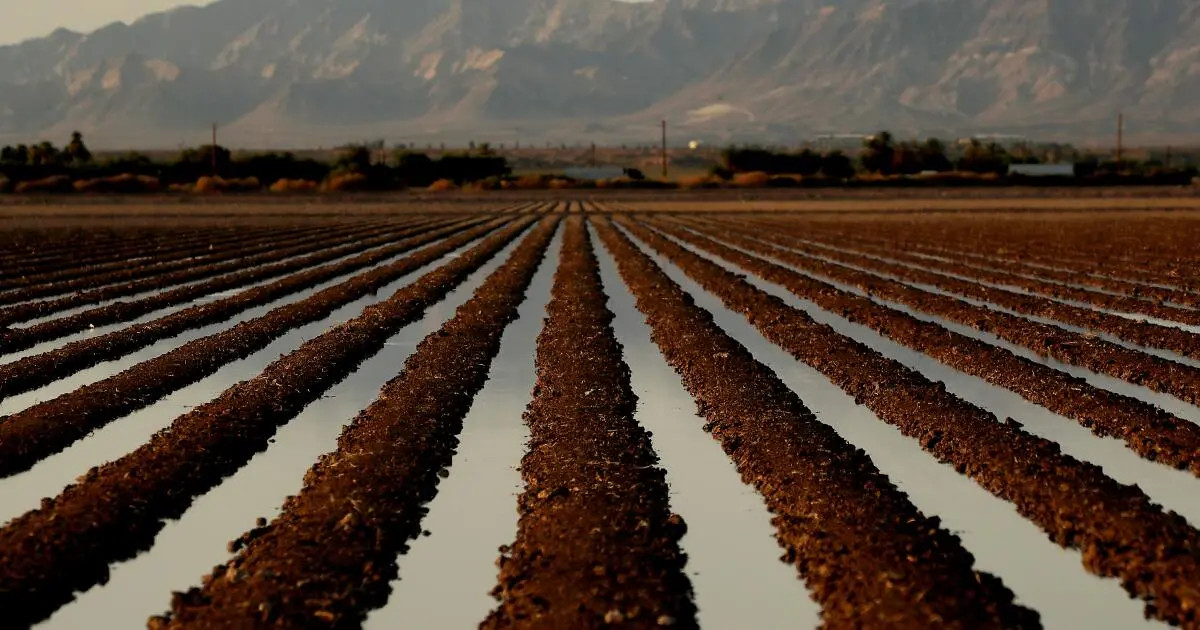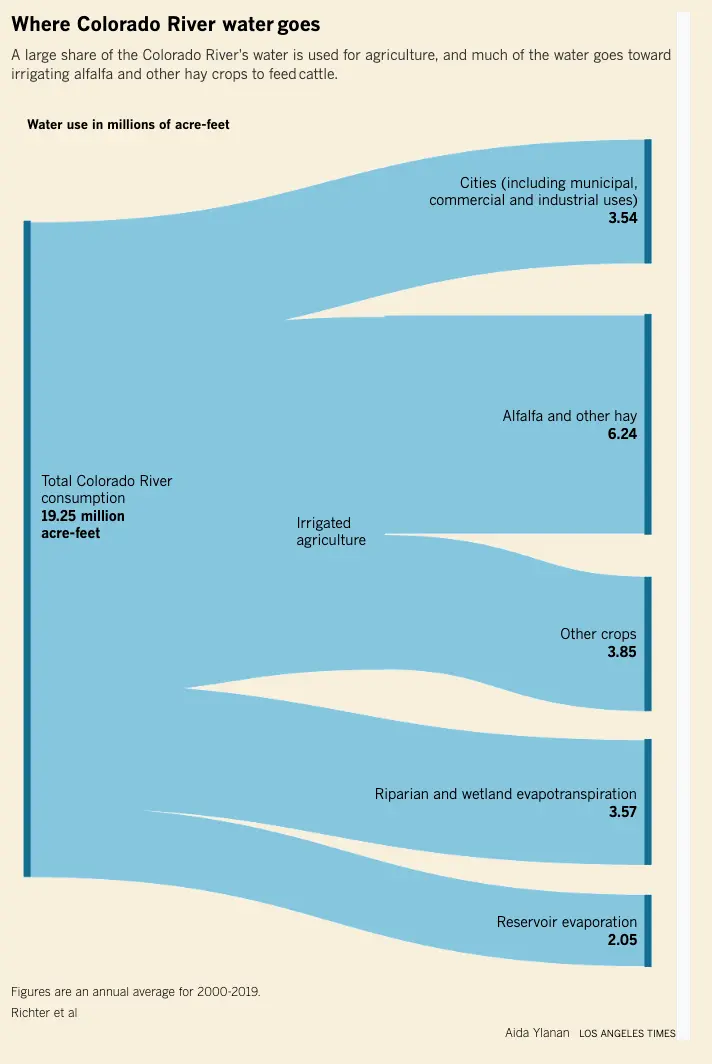I do not understand why we don’t just plant switch grass and be done with it? It’s native to a large swath of the arable land, doesn’t require as much (in some areas any) irrigation and it’s good for the soil. https://cropwatch.unl.edu/benefits-switchgrass-hay-and-forage
https://utia.tennessee.edu/publications/wp-content/uploads/sites/269/2023/10/SP701-B.pdf
Edit: Also 6.24 is closer to a third of 19.25 than it is a half. Which is still a massive amount of water. Why inflate the numbers by saying nearly a half?
What’s even more frustrating is that it’s not useful. Here’s an article about Utah’s water usage WRT alfalfa:
alfalfa and other kinds of hay sucks up 68% of the 5.1 million acre-feet of water diverted every year in Utah
…
amounts to 0.2% of the state’s annual gross domestic product
…
Almost a third of it is exported, mostly to China, taking far too much of our water with it.
So, Utah is using 2/3 of their water to produce 0.2% of their GDP and exports almost a third of it. It’s completely stupid…
It’s because you have to use your water to keep water rights. Flood irrigating alfalfa is an easy way to use up a lot of water to keep the rights without having to manage more complex farms. The current way that water rights works creates perverse incentives.
Water which evaporates from reservoirs or wetlands isn’t “drawn” from the river for human use. So it’s about half of water removed for human use
Thanks for the clarification!
I dont understand why we dont ban cattle breeding & importing and be done with it?
I’m ready for lab grown meat farms.
No (very little) ethical implication
Scientifically tuned flavors and meat content (allergens? Vitamins?)
More focused growth, less waste
Fewer emissions
More low impact agriculture areas, more habitat for wildlife restored
Less transit costs, meat grown within the cities it’s consumed in
Less antibiotic resistant bacteria
No chance of mad cow/that T disease pigs used to spread.
Or just eat plants? Its better in everything you just said, but moreso
I’ve yet to find a plant substitute for every flavor and texture that I might want to consume, variety is the spice of life. We could all eat Soylent or jelly fish, and if that was all we had let’s chow down! I eat vegetables as much as I enjoy to, and I eat other things in the same moderation. I don’t eat things that are trying to imitate other things, I nearly always prefer the original to the imitation (I appreciate that some people don’t want the original, or cannot have the original, so I’ve never talked against those products existing), plants do not have the same texture, nor cook the same way, as meats, it doesn’t happen. I’m not against progress and I appreciate the ethical (and sometimes biological) argument against modern farming, but I would try to dissuade you against turning perfect into the enemy of better.
Them: Let’s stop climate change!
Me: Great! Eat less meat!
Them: . . . visibly upset Noooooooooooo
Its necessary, not sufficient.
The same is true for stopping all internal combustion engines in yard maintenance. Its necessary, its not (alone) sufficient.
We need to do all of these things.
What a waste. A lot of gray water would probably be fine for growing hay.
The obvious solution is to bring back Swill Milk,




